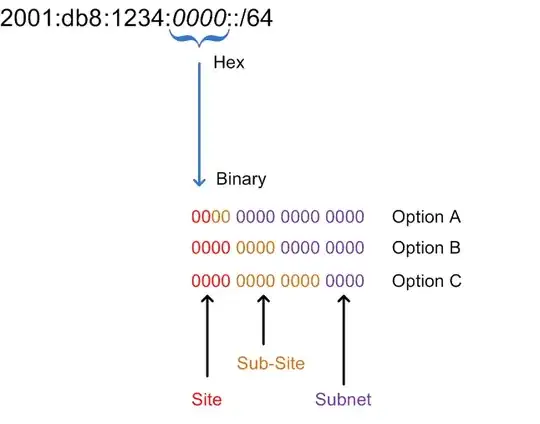So I've just been assigned a /64 IP address range. I'm using SolusVM to manage virtual machines.
With the /64, I am given the first 4 (octets? I think they're called) so my format is currently
XXXX:XXXX:XXXX:XXXX:blank:blank:blank:blank
SolusVM has offered to generate a range of 100 IPs for me. It will only auto-fill the final two octets, so I used:
XXXX:XXXX:XXXX:XXXX:1:1:AUTO:AUTO
and SolusVM generated 100 IPs for me. My question is, how many IPs are there in the XXXX:XXXX:XXXX:XXXX:1:1:AUTO:AUTO range? Assuming that only the values inside the :AUTO:AUTO fields are changeable? Does this have a specific name as a "block" (eg: in place of a /64)
Sorry for the rookie question!
